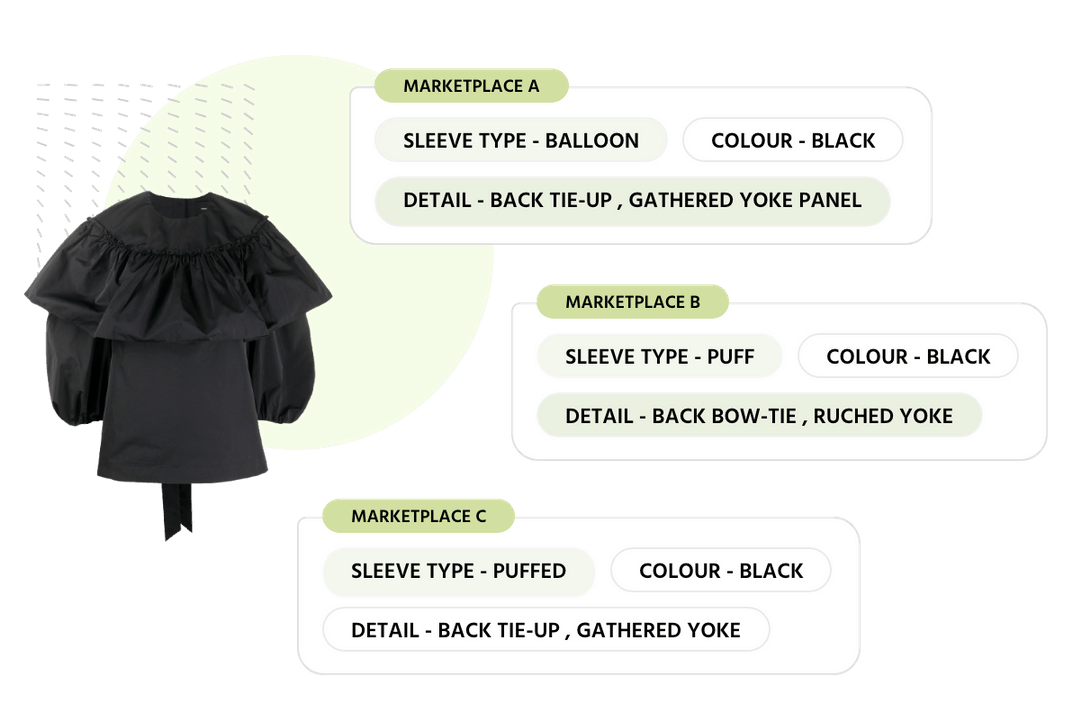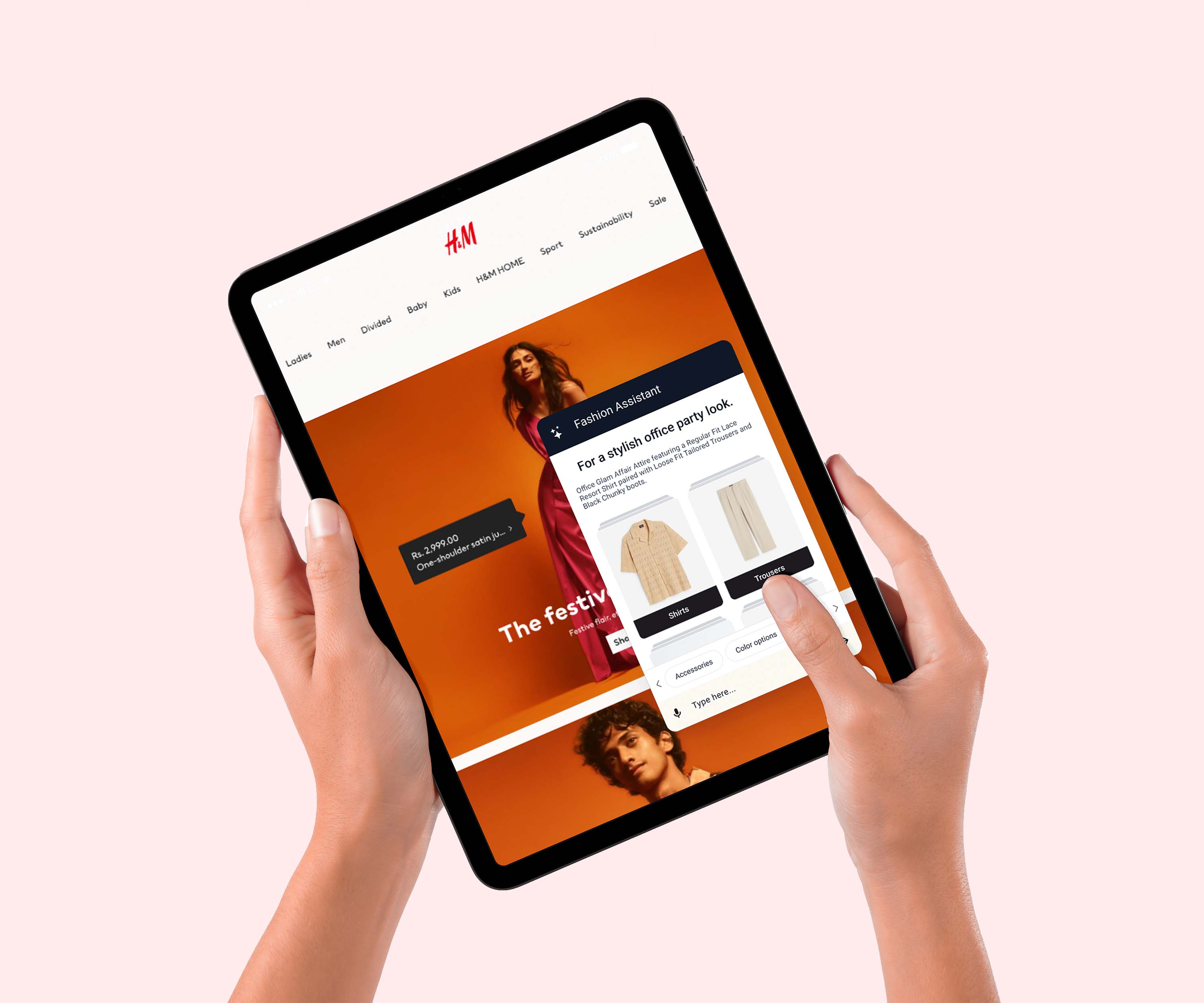
Limitations of ChatGPT and how you can overcome it for Fashion
ChatGPT, powered by cutting-edge AI technology, has revolutionized the way businesses interact with customers. Fashion retailers have also jumped on the bandwagon to leverage the potential of ChatGPT to enhance customer experience and boost sales. However, as with any advanced technology, ChatGPT comes with its own set of limitations. In this blog, we will explore these limitations in the context of the fashion industry and discuss potential strategies to overcome them.
Limitation 1: Lack of Innate intelligence
One of the primary limitations of ChatGPT is its inability to think for itself. It follows patterns and cannot empathize with customers on a human level. Fashion is deeply intertwined with personal tastes and preferences, and customers often seek validation or personalized advice when shopping for clothing. ChatGPT, being an AI language model, lacks the understanding required to truly connect with customers. It can at best give some generic advice.
Overcoming It: To address this limitation, fashion retailers can use fashion-optimized personalization engines with a ChatGPT wrapper. The AI styling engine from Streamoid allows Brands to control the styling advice and recommendations and Customers can get validation from world-class stylists that they trust.
Limitation 2: Inability to Interpret Complex Queries
ChatGPT may struggle with understanding and responding to complex and ambiguous queries. Fashion-related questions can sometimes be convoluted, involving multiple parameters like body shape, color preferences, and occasion-specific dressing. The AI model might provide generic responses or fail to grasp the nuanced nature of the inquiry, leading to frustration among customers.
Overcoming It: To overcome this limitation, retailers should implement context-aware and user-friendly interfaces. Using prompt engineering use can guide customers through a series of targeted questions, collect relevant information and refine the AI-generated responses to offer more accurate and tailored fashion recommendations.
Limitation 3: Ethical Concerns and Biases
ChatGPT learns from vast amounts of data available on the internet, including content that may be biased or perpetuate harmful stereotypes. This can lead to AI-generated content that reflects and amplifies these biases, potentially affecting fashion recommendations and reinforcing unhealthy beauty standards or discriminatory practices.
Overcoming It: Fashion retailers must implement rigorous data filtering and monitoring mechanisms to ensure that the AI model is trained on diverse and ethical sources. Additionally, periodic audits and bias-checks can help identify and correct any biases that may arise.
Limitation 4: Limited Creativity and Novelty
Fashion is an ever-evolving industry that thrives on creativity and novelty. While ChatGPT can analyze existing fashion trends and provide recommendations based on historical data, it may lack the ability to anticipate emerging trends or push the boundaries of creativity.
Overcoming It: To augment ChatGPT's creative capabilities, fashion retailers can combine AI insights with human trend forecasters and designers. Human experts can analyze the AI-generated data and translate it into innovative designs and collections, combining the best of both worlds.
Limitation 5: Language Barriers and Multicultural Differences
Fashion is a global industry with diverse customer bases speaking various languages and having distinct cultural preferences. ChatGPT may face challenges in handling multiple languages and understanding cultural nuances, leading to inaccuracies in cross-cultural communication.
Overcoming It: To address this limitation, fashion retailers can invest in multilingual AI models or integrate ChatGPT with language translation tools. Additionally, collaborating with local fashion experts can provide valuable insights into cultural preferences, ensuring more accurate and culturally sensitive responses.
Limitation 6: Ability to Hallucinate
ChatGPT's ability to understand and generate human-like text has made it a versatile tool for various applications in natural language understanding and generation tasks. However, it's important to be aware that it may sometimes produce responses that are not entirely accurate or contextually appropriate but presented in a very confident manner.
Overcoming It: One way to overcome this is to ensure that verified knowledge banks are used for generating responses wherever possible. And the different customer journeys should be tested constantly to find the edge cases and program an appropriate response.
At Streamoid we believe that ChatGPT offers tremendous potential for the fashion industry, but it is essential to be aware of its limitations and work towards overcoming them to provide the best possible customer experience. Streamoid has been researching fashion since 2016 and has a vast verified knowledge bank, an AI styling engine and the ability to automatically enrich the catalog with Catalogix. By striking the right balance between their internal AI technologies and ChatGPT their style bot works in a more controlled environment and is likely to be more suitable for brands.

CTA: Join the waitlist to get the Beta.

Importance of Product Taxonomy: Role of AI in Automating & Improving Taxonomies



